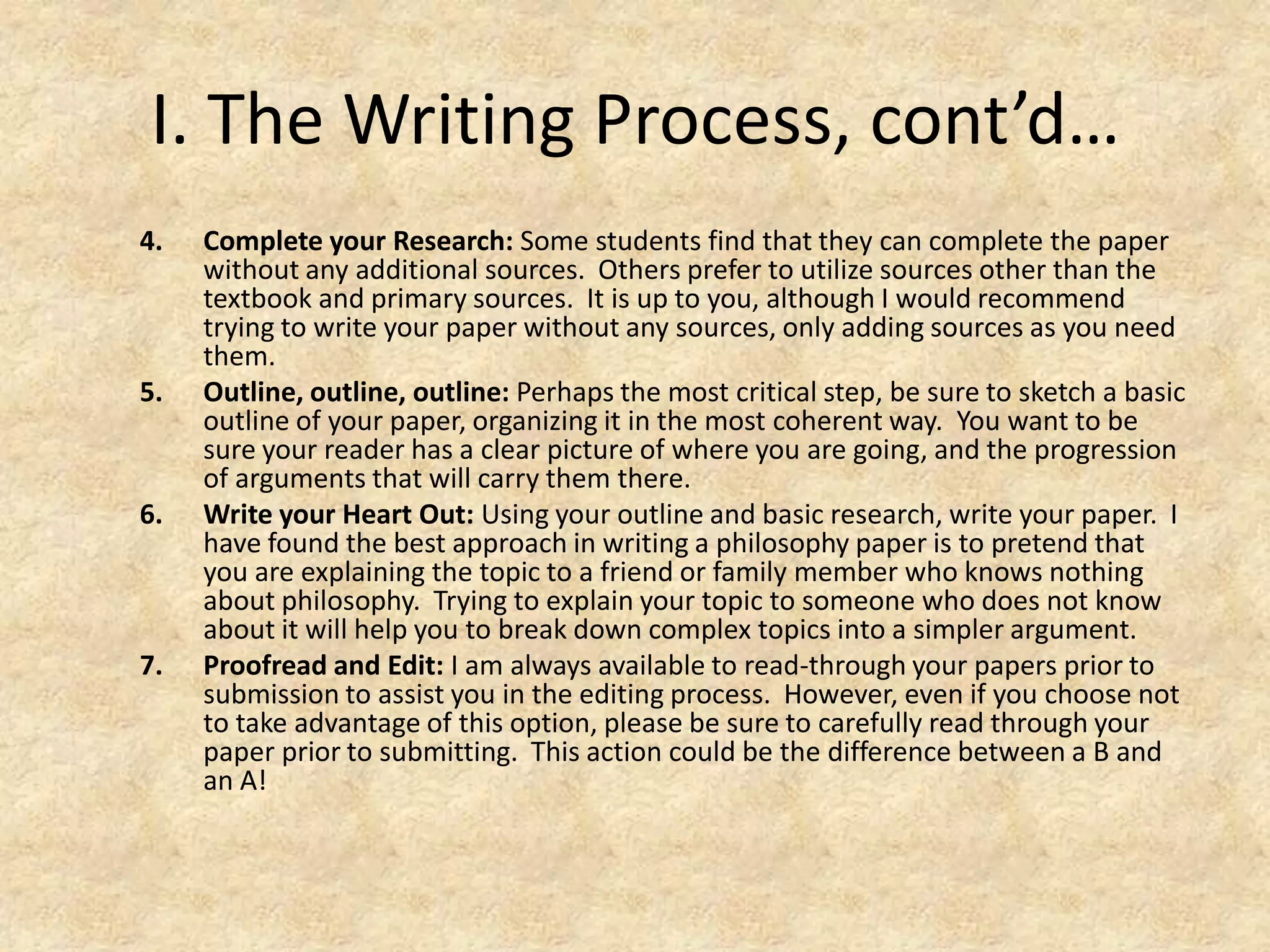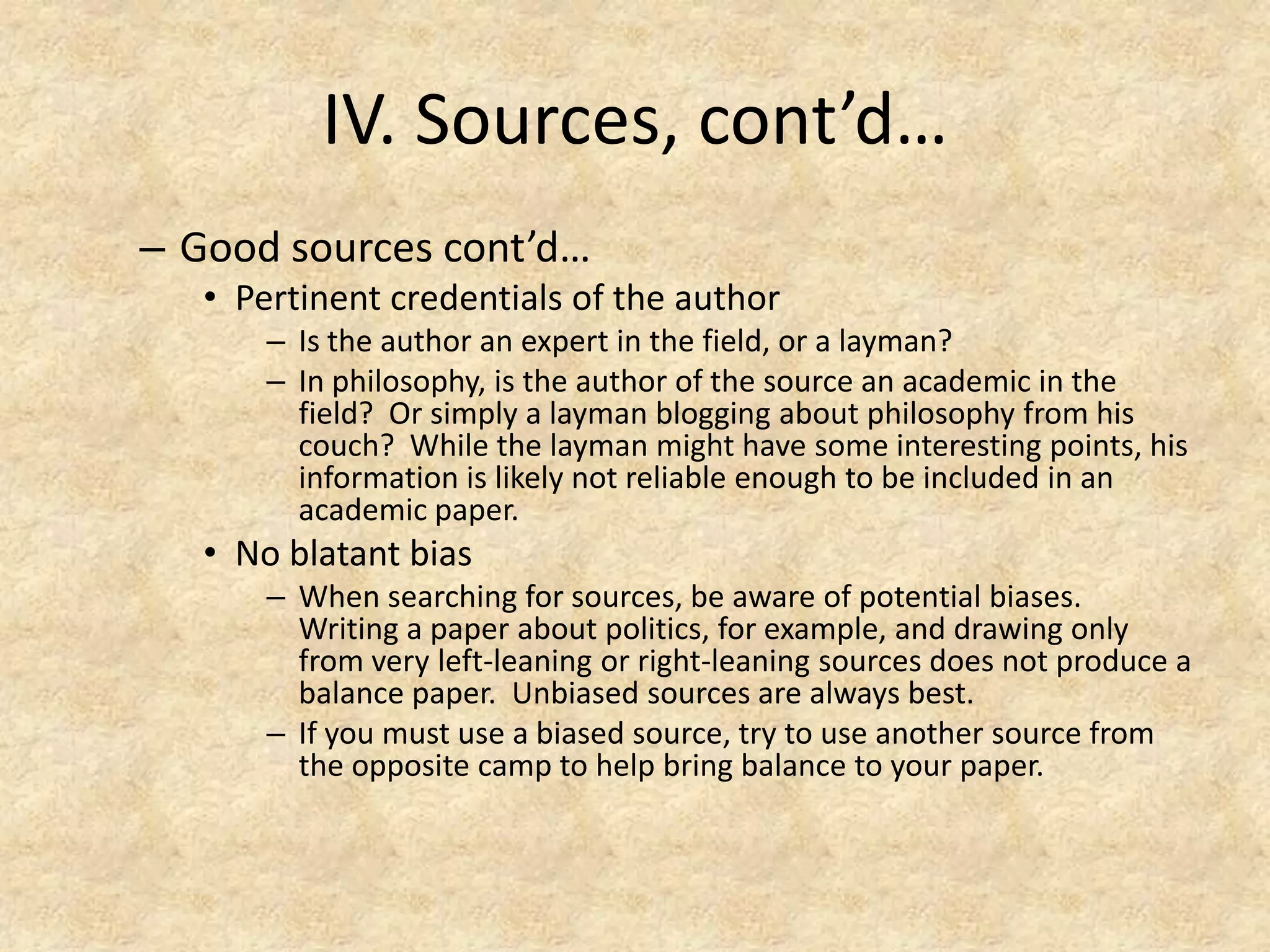This document provides guidance for writing a college philosophy paper, including the professor's expectations, tips for writing the paper, and an overview of the writing and research process. Key points include meeting a 5-page minimum, having an original argument supported by the course text, properly formatting the paper in MLA or related style, avoiding plagiarism, and utilizing credible academic sources while considering potential biases.














